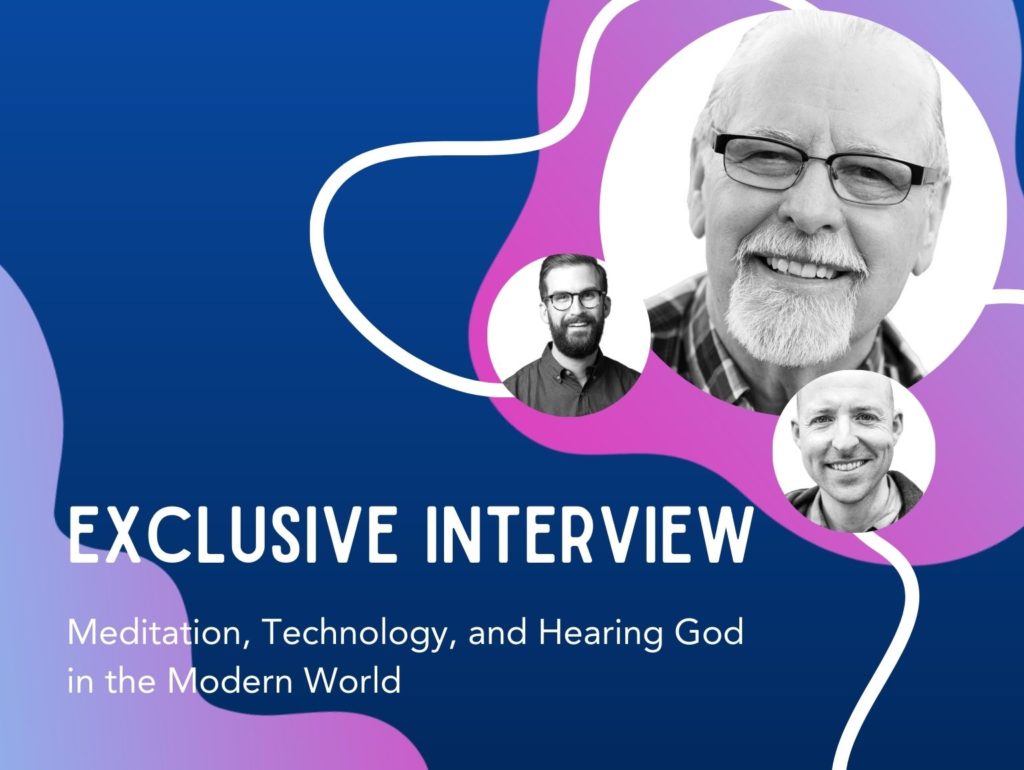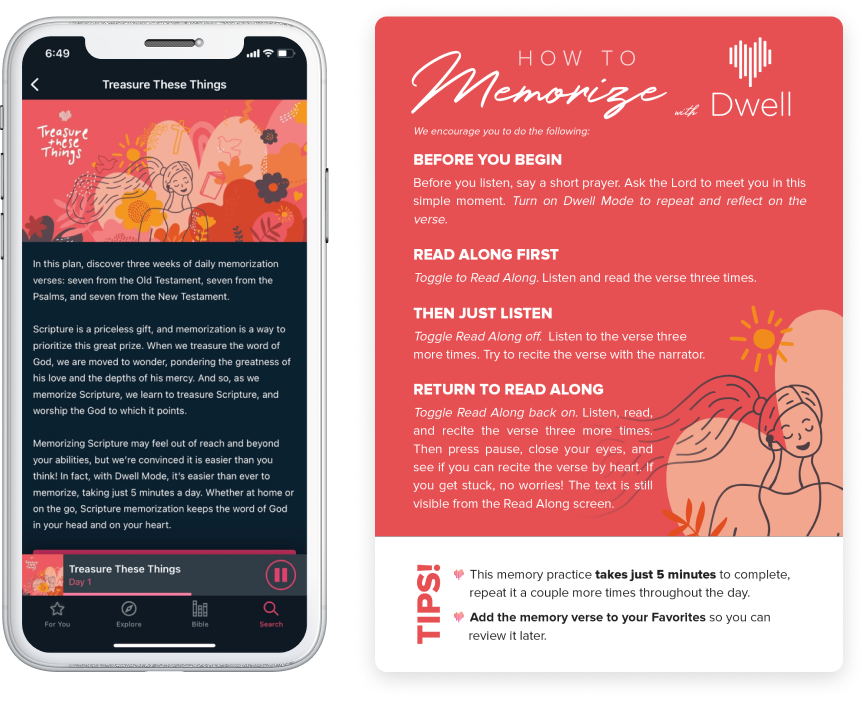Few people have done more to encourage contemporary followers of Christ to rediscover the ancient rhythms of Christianity than Richard Foster.
For decades, as an author, speaker, and spiritual director, Foster has encouraged us to cultivate an intentional life with Christ, rooted in his Word, open to the witness of the Church through the ages, and led each moment by the guiding hand of the Spirit. It is this way of life that we aspire to at Dwell, and one of the primary reasons we are thrilled to have him lead our Dwell community through the discipline of biblical meditation this summer.
Foster speaks to the necessity of daily time in Scripture in his modern-day classic, Celebration of Discipline, which opens with these words: “Superficiality is the curse of our age.” With countless distractions at our fingertips, attentiveness to the Lord and his Word is more important than ever before! Meditation on Scripture is medicine that heals our inattentiveness and awakens in us a longing for God. Simply put, a habit of daily meditation is essential if we are to become people of substance and depth.
Over the coming weeks, join us as Foster leads us through the Scriptures, creating space each day to dwell with God in and through his Word.
Richard Foster: Full Biography
Born in New Mexico in 1942, Richard J. Foster spent most of his growing-up years in Southern California, where he became friends with a group of Quaker youth. He came to faith in Christ in that small Friends gathering, and their ministry was pivotal in Richard’s life. When as a teenager his parents died, his church family provided the funds for Richard to pursue his education. Because of their generosity, he was able to graduate from George Fox College and Fuller Theological Seminary.
Now married to Carolynn and holding a seminary degree, Richard became the pastor of Woodlake Avenue Friends Church in Canoga Park, California. Although he would later describe that church as “a marginal failure on the ecclesiastical scoreboards,” Richard’s time at Woodlake would prove to be deeply formational. Faced with the challenges of pastoring, Richard turned to the devotional classics for soul sustenance. From these writers Richard learned to practice the spiritual disciplines. He also attended the Sunday school class of one of his parishioners, Dallas Willard, with whom be became fast friends. Richard also befriended the pastor of a nearby Lutheran church, Bill Vaswig. Although they were neighbors for just a few years, the friendship of these three men endured throughout their lives.
Richard and Carolynn moved to Oregon in 1974, where Richard joined the pastoral staff of the Newburg Friends Church and the teaching staff of George Fox College. He continued to practice the spiritual disciplines and to teach them to congregants and students. In 1977 Richard wrote Celebration of Discipline, which was published by Harper & Row in 1978.
The success of Celebration of Discipline presented multiple opportunities, including an invitation to join the faculty of Friends University in Wichita, Kansas. Richard, Carolynn, and their two sons, Joel and Nathan, moved to Wichita in 1979. His position at Friends gave Richard freedom to travel and speak about the spiritual life. In many conversations, people asked Richard for a next step beyond what they had learned in reading Celebration of Discipline. Richard discerned a pattern: that people were trying rather than training to become like Jesus, that they held a myopic rather than a synoptic view of the path to Christlikeness, and that they were scattered rather than gathered. How to address those needs became a focus of Richard’s work.
After years of writing, teaching, and traveling, Richard sensed a call to silence. In 1986 he said no to all public ministry and focused on listening to God. During this time Richard felt led to establish a ministry devoted to the renewal of the church. With help from James Bryan Smith, Roger Fredrikson, Marti Ensign, Lynda Graybeal, and his old friends Dallas Willard and Bill Vaswig, Richard founded Renovaré in 1988.
Richard went on to write many other books besides Celebration of Discipline, including PRAYER: Finding the Heart’s True Home, Streams of Living Water, and Sanctuary of the Soul. He also led an editorial team to publish a study Bible focused on spiritual formation. He served as President of Renovaré until 2008 and continues to serve in an advisory role. He and Carolynn now live in Colorado, where they look forward to visits from from their nine grandchildren.







